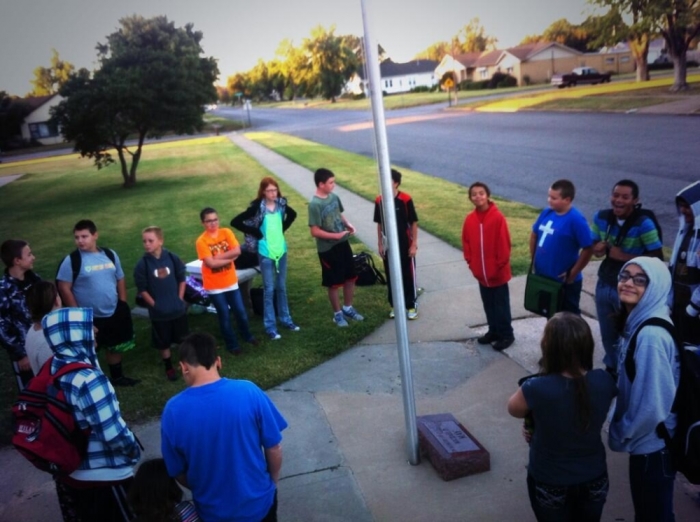How Should Middle Schoolers Be Discipled? Youth Pastors Answer

Middle schoolers prove to be challenging to mentor in their faith, partly because it is often the first season of their lives where they begin to have doubts and are pulling away from their parents.
But connecting with them in consistent small groups and active listening makes a huge difference, according to veteran middle school youth ministers.
As part of the Parenting Teens Summit, a webinar series hosted by biblical worldview equipping group Axis, pastors Kenny and Elle Campbell, founders of Stuff You Can Use who are also on staff with the Atlanta-based Orange, explained that middle school is often a "tumultuous" time for youth.
This is usually the season in life when kids begin to experience doubt for the first time, they noted. Just as their bodies begin to transition through puberty, these years are often also a spiritual transition.
"Usually, middle schoolers are not people's first pick when they are looking for places to volunteer in the church ... it's probably on the bottom of the list," Kenny Campbell said with a laugh in an interview with Axis hosts.
Be he was quick to add that he and Elle soon fell in love with the 6th through 8th graders.
At this age, kids are often unashamedly "weird" and "awkward," said Elle, noting how this is the time when kids start to ask serious questions, begin pushing back against authority for the first time, and shape their identities for themselves apart from their parents.
But it is also the time when youth begin to take ownership of their faith.
When it comes to youth ministry, particularly ministering to middle schoolers, Elle Campbell said, "small groups are kind of the answer to everything possible for a lot of reasons."
A consistent group, with a consistent groups of kids, with a consistent adult leader is crucial, she added, because they create a safe place for them to process spiritual kinds of questions.
"I think one of the most damaging things we can do, especially in middle school, as they start to ask these harder questions is to kind of give them the appearance that their questions are not welcome," she explained.
Opening up a dialogue as opposed to having them just sit there and listen to what a pastor says will create deeper trust.
"A kid's best chance of sticking with their faith in the long term is when they have five or more adults investing in their lives," Campbell said, referencing the scholarship of Kara Powell of the Fuller Youth Institute.
But it is also critical that parents not defer to the church or their youth ministry for the discipleship of their middle schoolers. A ministry gap between the church and home sometimes exists that needs to be bridged.
The Campbells host a breakfast at church where small group leaders connect with parents to facilitate a deeper connection.
"One thing for parents to remember is that as your kids get older, starting with middle school years and going through high school, they are going to pull away from you and that is not a bad thing. That is a normal, healthy part of growing up," she said.
And when parents feel that tension of their middle school kids pulling away, they must be intentional in connecting with them nevertheless and engage them in conversation. Asking the right kinds of questions is essential, they said.
Yes or no questions about spiritual things, like "Was church good today?" will not get you very far, the Campells explained. By contrast, open-ended question where kids are not put on the defense prove more effective.
And if and when kids ask about touchy subjects like same-sex attraction or gay marriage, it is best for parents and leaders to refrain from attempting humor to avoid the topic, Kenny Campbell advised.
"[You] shouldn't laugh at them, make a joke real quick and dismiss it and move onto something else. If a student's asking about something, as soon as you make a joke it lets them know that 'oh, this isn't the right person to ask anymore because I already know they are going to laugh when I ask it.'"





























